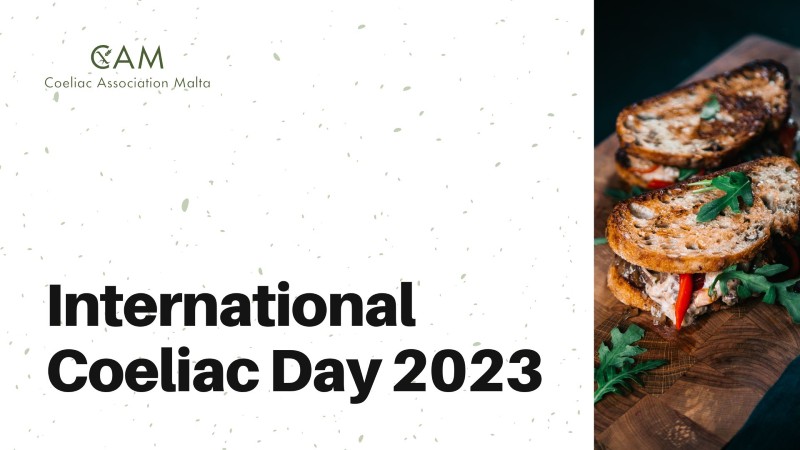
16th of May marks International Coeliac Day, coeliac organisations around the world join together in raising awareness on Coeliac Disease and the Gluten Free diet.
This year, the Coeliac Association joins VeggyMalta again to organise the second Malta Gluten and Lactose Free Week. It is a week dedicated to discounts on gluten and lactose free products in participating shops and most importantly awareness information on coeliac disease and lactose intolerance.
The earlier the diagnosis, the better
Coeliac Disease is a condition that can occur at any age, however the majority remain undiagnosed. Symptoms that may include bloating, weight loss, fatigue and, in the case of children, slow growth. If a family member is showing signs of these symptoms, it is important to follow the right procedures to test for Coeliac Disease.
An early diagnosis means that treatment for Coeliac Disease can start as soon as possible and avoid possible complications that may arise with the disease.
It’s never too late to learn about coeliac disease and the gluten free diet. Here are some basics to keep in mind:
What is coeliac disease?
Coeliac Disease is an autoimmune disease where the body attacks its own tissues due to eating gluten. This damages your small intestine’s lining which prevents properly absorbing nutrients from food. The only treatment is a strict gluten free diet.
Read more about Coeliac Disease
Getting diagnosed
In order to get diagnosed, you should start off with seeking medical advice from a GP or your family doctor. Specific blood tests help to screen for Coeliac Disease. If positive, a gastroscopy is performed which will confirm whether or not the condition is present.
It is important to note you should not start a gluten free diet before the diagnosis is confirmed.
Read more about the process on getting diagnosed
Quickfire advice
- Seek medical advice: If you are suffering from certain symptoms seek medical advice and do not start a gluten free diet until the diagnosis is complete.
- Balanced diet: Rather than substituting gluten contained foods with gluten free foods, try to focus on a balanced diet using naturally gluten free food.
- Eating out: It is always important to ask if they cater for coeliacs and take the necessary precautions to eliminate cross contamination as much as possible.
- Food labelling: Focus on buying gluten free products that clearly state that they are gluten free. Reading ingredients on products is also important, the common practice in the industry is to list all allergens in bold.
- You are not alone: Do not shy away from explaining your condition to family, friends or colleagues. You would be surprised at the level of support you will get.
